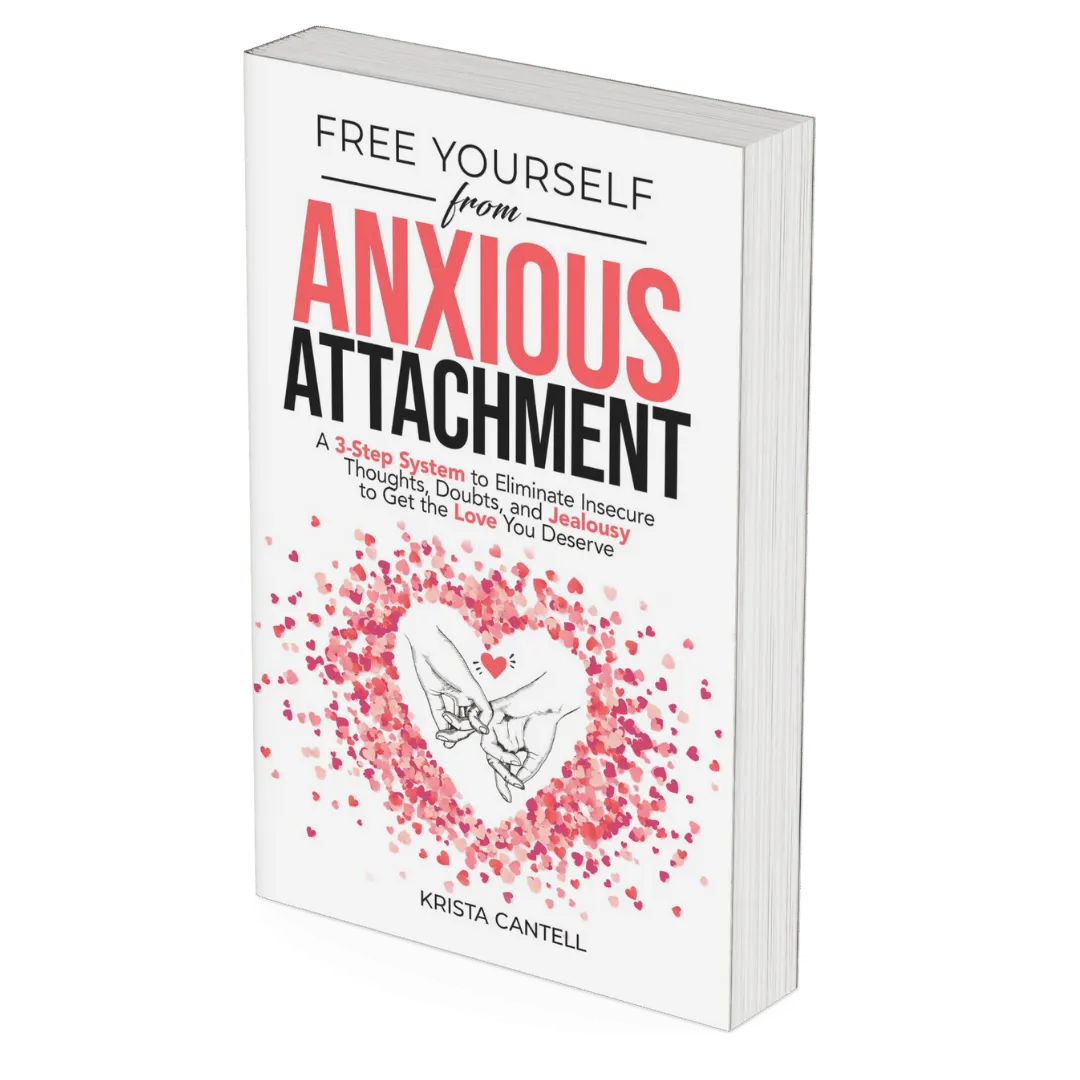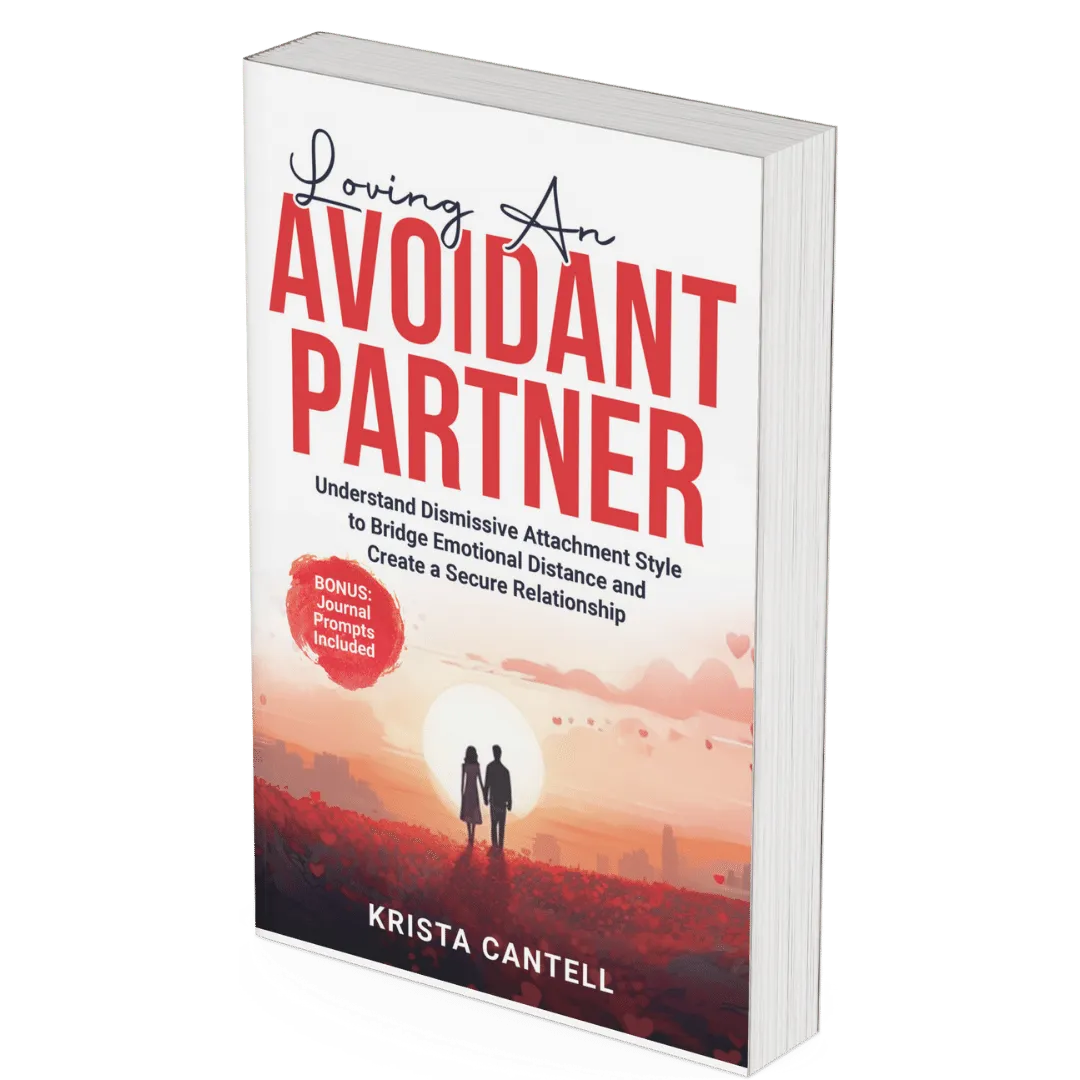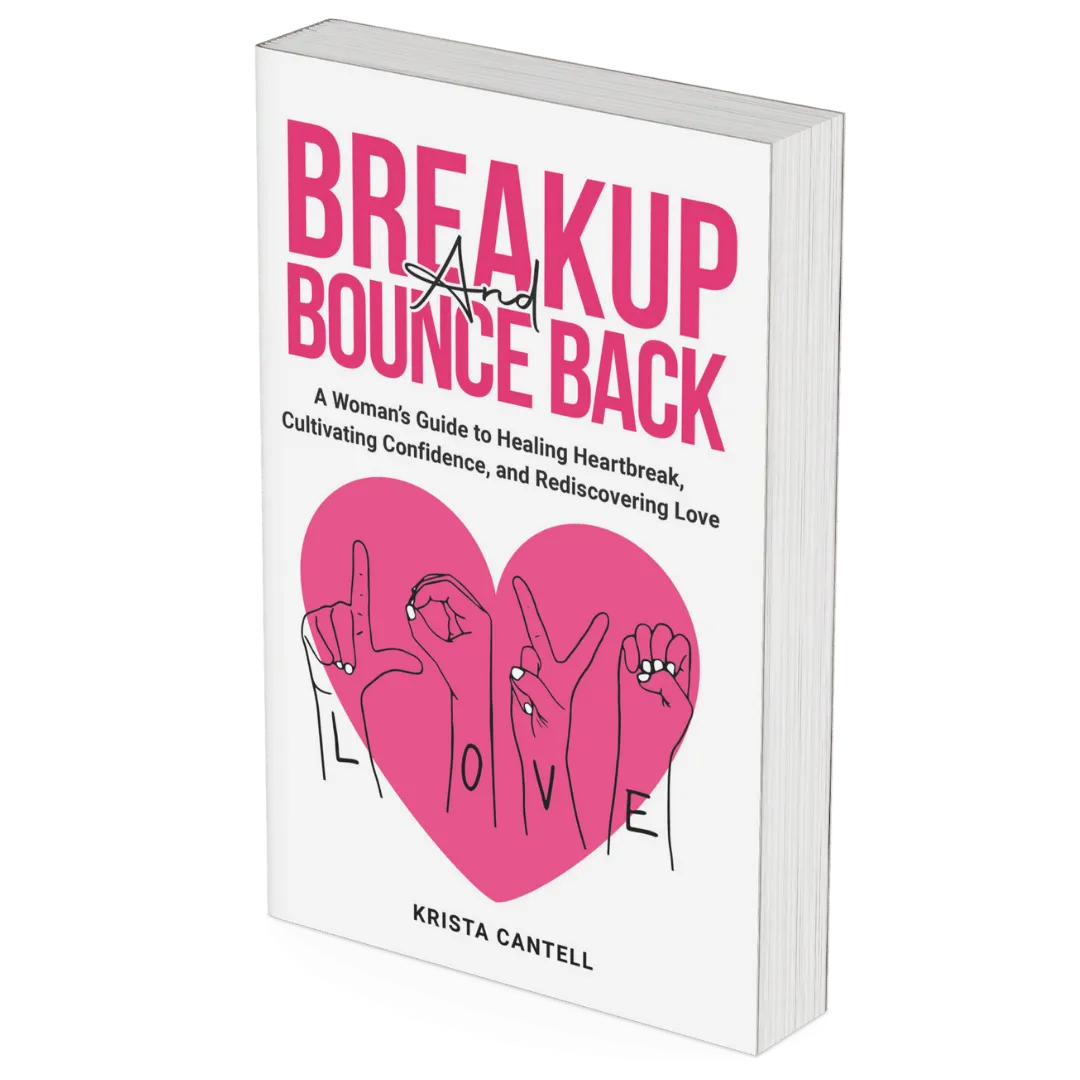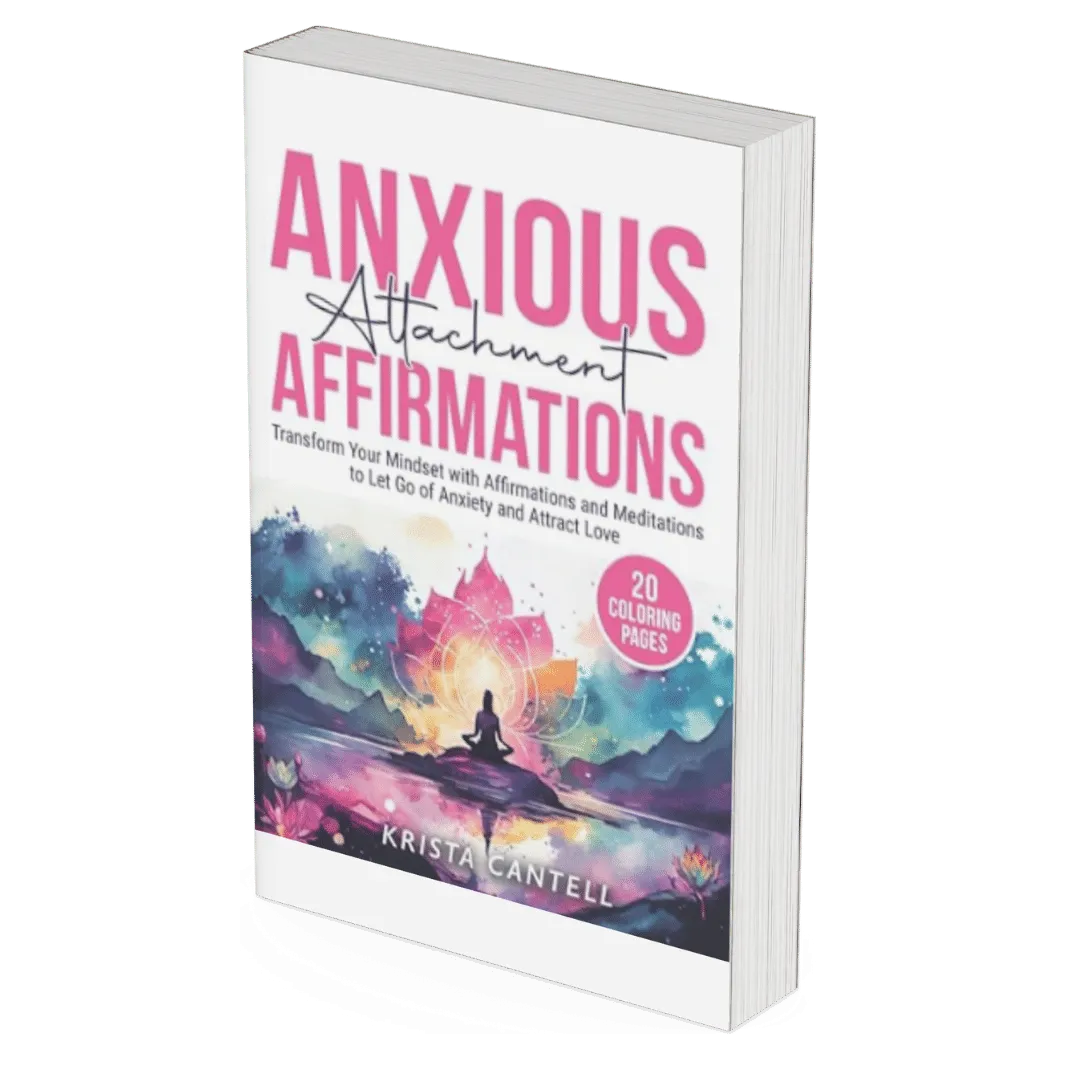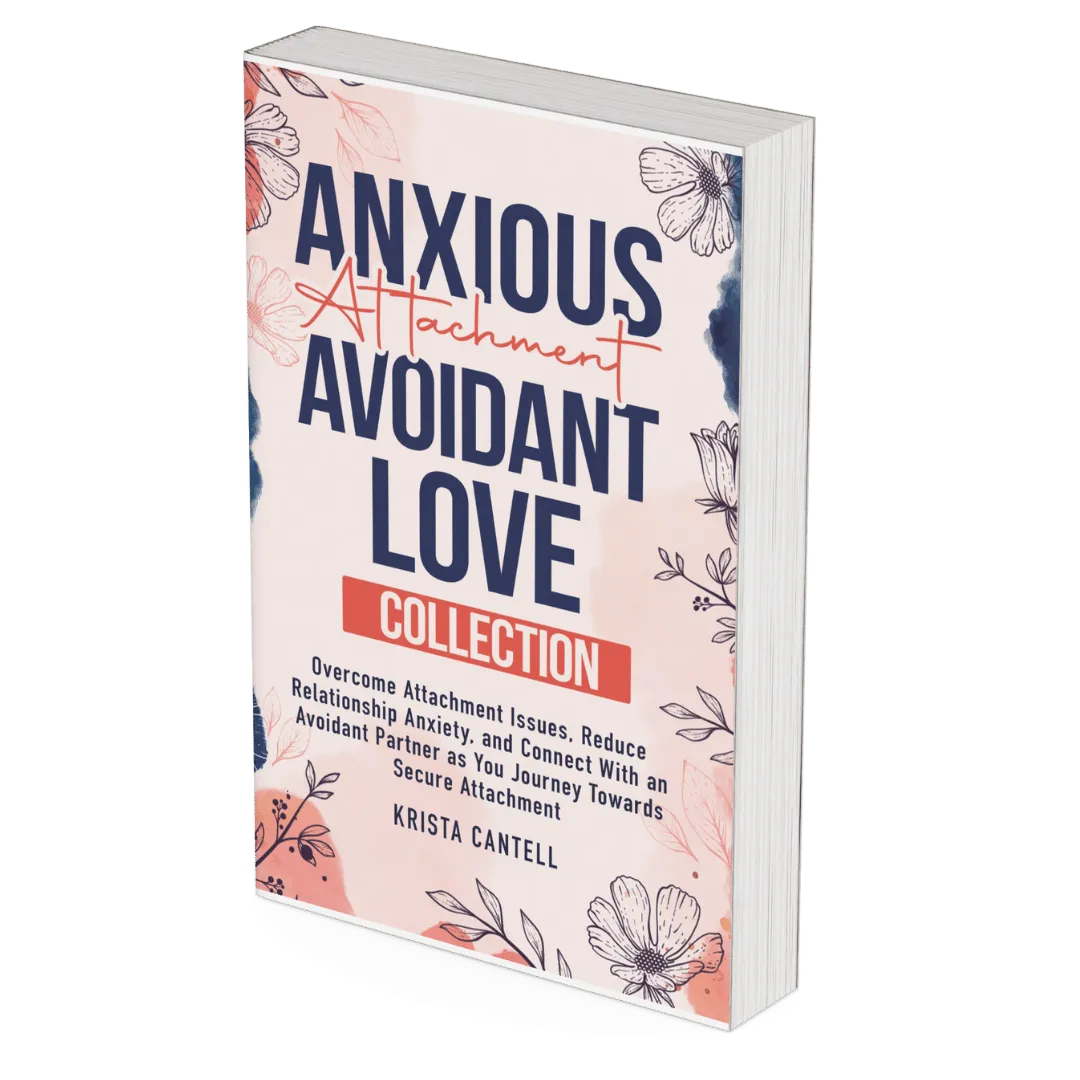Empowering Connections and Transforming Love
Attachment Theory Books for Lasting Love
Dive into our carefully curated selection of transformative books, enriching courses, and expert therapist recommendations, all designed to empower you with the knowledge and tools to build deeper, more fulfilling connections. Whether you're seeking to understand your relationship patterns, improve communication with your partner, or simply enrich your personal growth journey, Attachment Theory Books is here to light the way. Start your journey towards stronger, healthier relationships today!
FEATURED ATTACHMENT BOOKS THIS MONTH
Transform Your Love Life
Transform Your Love Life by embracing a secure attachment style with your partner. Discover the essence of enduring love through attachment theory, fostering deeper empathy, trust, and emotional connection. Our resources offer insights and practical tools to help you and your partner grow together, strengthening your bond. Whether starting anew or enriching an existing relationship, a secure attachment approach leads to a more fulfilling, loving partnership. Start your transformative journey with us and elevate the quality of your relationship.

Attachment Theory Books & Resources

Attachment Book Recommendations
Explore the transformative world of attachment theory with our handpicked book recommendations. Start your self-help journey with us, and unlock the secrets to a more fulfilling love life through the power of knowledge and self-discovery.
Connect with Therapists
Connect with the right support on your journey to healthier relationships. We offer easy access to a network of therapists specializing in attachment theory. Find the perfect match for your unique needs and start working towards a more secure, fulfilling partnership with expert guidance.

From The Attachment Theory Books Blog

Anxious Attachment Style Dating
Anxious Attachment Style Dating: Navigating Relationships Confidently
In the realm of relationships, individuals with anxious attachment style tend to seek a high level of emotional intimacy and approval from their partners. Often emerging from a background of inconsistent caregiving in childhood, those with an anxious attachment style can experience intense fears of abandonment and may react with behaviors driven by the worry of losing their partner. This attachment style influences not only how they perceive their partners’ actions but also how they engage in relationships, including dating.
Dating can become a complex experience for those with an anxious attachment style. They may find themselves requiring constant reassurance and may struggle with jealousy or possessiveness, traits that can create stress in relationships. Recognizing the attributes of this attachment style is the first step towards navigating dating more effectively. It's essential to approach relationships with a self-awareness that enables adaptation and growth. For those dating with an anxious attachment style, developing strategies for stable and healthy relationships is critical, balancing their intrinsic need for closeness with maintaining individual independence.
Key Takeaways
Individuals with anxious attachment often seek high levels of intimacy in relationships.
Recognizing one’s attachment style can aid in navigating the complexities of dating.
Strategies for personal growth are crucial in fostering healthier and more secure relationships.
Understanding Anxious Attachment Style
Anxious attachment style is rooted in attachment theory and manifests as a deep need for closeness paired with fear of abandonment. It's often shaped by early childhood experiences and may require therapy to manage.
The Basics of Attachment Theory
Attachment theory posits that early interactions with caregivers shape an individual's expectations for future relationships. Developed by John Bowlby and Mary Ainsworth, the theory outlines four attachment styles: secure, anxious, avoidant, and fearful-avoidant. Attachment styles influence how people perceive and behave in relationships, impacting emotional needs and anxiety levels.
Secure Attachment: Confidence in relationship stability and independence.
Anxious Attachment: Intense need for closeness, fear of abandonment.
Avoidant Attachment: Discomfort with closeness and a preference for independence.
Fearful-Avoidant Attachment: Mix of anxious and avoidant tendencies.
Characteristics of Anxious Attachment in Adults
Adults with an anxious attachment often experience high levels of insecurity and anxiety in relationships. They may:
Seek constant reassurance of affection.
Display heightened sensitivity to a partner’s actions and moods.
Characteristics include:
Preoccupation with Relationships: Excessive worry about relationship status.
High Responsiveness: Often very responsive to partners' emotional states.
Fear of Abandonment: Persistent concern that partners may leave them.
A clinical psychologist may address such issues through therapy, focusing on reshaping insecure attachment patterns into secure ones. This process involves addressing unmet emotional needs and exploring how childhood experiences have shaped current fears and behaviors.
Navigating Dating with Anxious Attachment
Individuals with an anxious attachment style often encounter unique challenges while dating. These challenges can influence their approach to relationships and their methods of communication and establishing trust.
Impact on Relationship Dynamics
Anxious attachment in dating typically leads to a heightened need for closeness and fear of abandonment. Such individuals frequently seek assurance from their partners, which can manifest in their need for frequent contact and expressions of affection. Trust is a cornerstone for these individuals, but it is often coupled with a fear that their partner may not be as invested in the relationship, leading to frequent misunderstandings and conflicts.
Communication: Transparent and honest exchanges are crucial. Regular discussions can help in affirming mutual feelings and intentions.
Boundaries: Establishing clear personal boundaries helps maintain a sense of independence and prevents the relationship from becoming overwhelming.
Trust: Building trust gradually through consistent actions and words is vital to mitigating insecurity and fostering a stable connection.
Dealing with Jealousy and Clinginess
Jealousy and clinginess can be primary concerns for those dating with anxious attachment, often leading to tension and dissatisfaction in relationships.
Jealousy: It can erode trust and create friction. Partners should address it by nurturing security through reassurance and understanding.
Clinginess: It stems from a fear of separation or rejection. Balanced communication and reaffirming independence while being supportive helps manage these feelings.

Individuals with anxious attachment benefit from acknowledging their own emotional responses and working with their partners towards achieving a healthy, satisfying relationship dynamic through deliberate and compassionate interaction.
Building Healthier Relationships
In the context of anxious attachment style, establishing healthier relationships involves fostering emotional safety and enhancing self-awareness along with self-esteem.
Creating Emotional Safety
Emotional safety is a cornerstone in transforming anxious attachments into secure bonds. Individuals can cultivate emotional safety by consistently communicating their needs and feelings in a clear, respectful manner. This entails active listening and providing reassurance to their partners, emphasizing the importance of mutual support.
Consistency in actions and commitments reinforces trust.
Regularly expressing gratitude and understanding each other’s love language contributes to a positive emotional environment.
Improving Self-Esteem and Self-Awareness
Self-esteem and self-awareness are critical traits that affect relationship dynamics. For someone with an anxious attachment style, working on these areas can lead to a more secure attachment style.
Self-compassion: Encouraging kindness towards oneself can reduce the fear of rejection.
Practice: Daily affirmations and reflections on personal strengths.
Self-awareness: Understanding one's triggers and behavioral patterns helps in addressing maladaptive relationship behaviors.
Tools: Journaling and therapy can serve as means for enhancing self-awareness.
In relationships, regularly engaging in constructive communication provides a means for individuals to express their needs and receive validation. Embracing a supportive approach to love involves recognizing and meeting each other’s emotional needs, fostering a healthy relationship built on a foundation of trust and mutual respect.
Strategies for Personal Growth and Healing
Individuals with an anxious attachment style may struggle with fear of rejection and clinginess in relationships. Healing involves a commitment to personal development and becoming more securely attached in one's relationships. Effective strategies can help individuals become grounded and foster a healthy sense of independence and confidence.

Therapy and Professional Support
Seeking a Therapist: A trained therapist can provide a structured environment for healing. They employ techniques to address underlying insecurities and teach coping strategies for stress.
Knowledge Acquisition: Through therapy, individuals gain knowledge about the nature of anxious attachment and how it influences their actions and expectations in relationships.
Consistent Check-Ins: Regular sessions allow individuals to monitor their progress and discuss any concerns with a professional who understands their commitment to change.
Developing Independence and Confidence
Cultivating Self-Reliance: Reducing reliance on a partner for emotional support helps in developing confidence.
Engaging in Solo Activities: Activities such as hobbies or exercise can improve overall well-being and reduce anxiety about the future of relationships.
Predictability and Routines: Establishing personal routines adds predictability and can soothe the anxious partner's need for certainty.
Self-Reflection Exercises: Encouraging introspection can aid in recognizing and addressing the fear of being unloved.
Journaling: Writing down thoughts and feelings helps individuals to check in with themselves and understand their patterns of clinginess.
Affirmations: Positive self-talk and affirmations can bolster self-worth and reduce the reliance on validation from a loved one.
Our Service

Attachment Books
Explore the transformative world of attachment theory with our handpicked book recommendations. Start your self-help journey with us, and unlock the secrets to a more fulfilling love life through the power of knowledge and self-discovery.
Therapist Connect
Connect with the right support on your journey to healthier relationships. We offer easy access to a network of therapists specializing in attachment theory. Find the perfect match for your unique needs and start working towards a more secure, fulfilling partnership with expert guidance.


